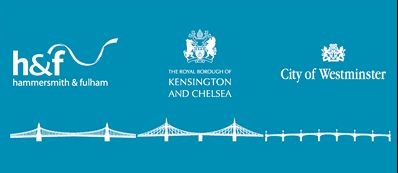The council has undoubtedly been going through a little local difficulty recently. That’s politics, it happens. What has surprised me is the feigned shock and surprise that the council, or more precisely the Conservative group, looks the various options that have been highlighted.
It is well-known the money just isn’t there like it used to be for the public sector. It’s perhaps less widely that councils are bearing the brunt of spending cuts. This may or may not be fair, depending on how you look at it; councils are responsible for a huge share of public spending, but in large part because they are at the frontline and the spending is on the most vulnerable in society. Whatever the rights and wrongs, councils have no choice but to make savings. It’s not just a Wandsworth thing.
Labour may be on a high horse in Wandsworth, but I have no doubt that similar lists exist in local authorities of every colour and hue. If they don’t, I’d question whether that council is doing their job.
I grew up as a heavy user of my local library, so know the benefits they offer. But equally as I have grown I have seen the way access to information has changed. Internet access is not quite universal, but is getting there. The net book agreement is no more, increasing retail competition and increasing book sales. People carry devices that can be used as ereaders with them as a matter of routine.
And I have changed too. My need for access to expensive reference books largely ended when I finished formal education. Commuting and bedtime reading replaced daytime breaks. Increasingly I would purchase—rather than borrow—books and then either keep them or donate them to charity or occasionally to (never) be tracked on sites like bookcrossing. I only used libraries occasionally, the last time was over ten years ago.
I won’t pretend I am representative, but when we’ve looked at libraries before the data show relatively few people use them, but those that do tend to use them heavily. Likewise, the books stocked see a small proportion borrowed frequently, while most languish, unloved, on the shelves for years.
If we were starting a library service from scratch, would we constitute it as we do now? I doubt it. I suspect we might put a much higher emphasis on children’s lending, perhaps look at the need for study areas at some libraries, consider whether internet access is as important as it was ten years ago. I also think we might not see quite the same need for big rooms full of shelves of books for adult lending.
But maybe I’m wrong. I would have absolutely no way of knowing without looking at the data, considering options and weighing those options against the council’s vision, policy objectives and other options.
Exactly the same argument applies to any other council service. Just because a need existed five years ago doesn’t mean it exists today. Likewise the council might have to address new needs today that just weren’t relevant five years ago. Nothing exists in a vacuum, including council budgets. While there might be an argument about policy making transparency, no-one should be getting on a high horse to discover the council considers options, they should be worried if it weren’t.
 Hammersmith and Fulham, Kensington and Chelsea and Westminster council’s published
Hammersmith and Fulham, Kensington and Chelsea and Westminster council’s published  Of course I didn’t actually go to the library in my boxers*
Of course I didn’t actually go to the library in my boxers*